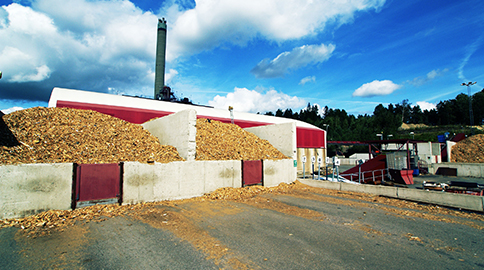Boilers are essential pieces of equipment for power plants. Without a fully-functional boiler, the plant’s power generation capabilities are inefficient – or, worse, sidelined indefinitely. As boilers age – and as your plant undergoes transformation, particularly if you convert from coal to biomass – you’ll need to maintain their level of efficiency. This usually means a boiler retrofit or upgrade.
How do you know when it’s time to upgrade or retrofit your boiler? When should you call a company that specializes in boiler work? Here’s a guide to explaining when to act and the next steps you should take.
The Benefits of Retrofitting a Boiler
Retrofitting or upgrading a boiler confers many advantages to a power plant and its owners, such as:
- Saving energy (it is not uncommon to see a 10-12% increase in energy efficiency)
- Saving money (upgrading a boiler cuts down on its cost of operation)
- Fewer pollutant emissions
- Enhanced efficiency through newer technology
Boiler upgrades also can increase the quality of the end product and streamline power production.
How do you know when to make the decision to upgrade?
Turning to Biomass Over Coal
Coal plants have taken hits over the past decade. Falling coal prices plus tightening regulations on carbon emissions from the EPA have made times tough for coal plant owners, which is why some are turning to augment their operations with biomass.
Biomass helps a coal plant because it cuts down on carbon emissions and gets coal plants below the threshold established by regulations. (Biomass is virtually free of both mercury and sulfur, for example.) Co-firing is now a globally-accepted practice, and the future looks bright. Biomass also reduces fuel cost, as some biomass sources are essentially “free” because they’re viewed as waste in some circles.
When converting part or all of a plant to biomass, a boiler retrofit is needed. A coal boiler cannot fire biomass as designed; it needs to be restructured to account for the new fuel. This is particularly important for a co-firing situation.
Capacity Is Decreasing
Boiler capacity – how much power or steam it can generate per hour – declines over time with age and use. Slower capacity costs a plant owner more and more as the years go on, until the boiler is no longer profitable to operate.
If your boiler capacity has noticeably declined over the years and has resulted in a decrease in efficiency, it’s time for an upgrade or retrofit. How much is too much to handle depends on your efficiency tolerance, i.e. how much degradation you can afford before you have to take action. For most plants, that tolerance level is very small given the tightening economics of energy production.
Operating Pressure and Temperature
Operating pressure and temperature are essential to maintain at correct levels. A drop in either constitutes a drop in output, which costs a plant money. If temperature or pressure drop low enough, the boiler is essentially useless and needs to be replaced.
This problem is particularly apparent in older systems, which constitute the majority of plants in operation (most coal plants are nearing retirement age; 74% are at least 30 years old). Older boilers naturally lose pressure and temperature over time, necessitating an upgrade.
Decreased Efficiency
Efficiency in boilers is generally measured by the fuel-to-steam ratio. In other words, how much fuel does it take to produce a certain amount of steam? If this ratio increases – it takes more fuel to produce the same amount of steam – efficiency has gone down. Efficiency costs a plant money and is one of the main ways a plant’s economics suffer over time.
Boiler upgrades and retrofits are essential when it comes to keeping a power plant operating near peak capacity. Retrofitting or upgrading a boiler can be more cost-effective than replacing a boiler with a new system (although overhauling an entire system of considerable size may justify an entirely new infrastructure). Watch for decreases in production that can be caused by boiler degradation and contact a provider who can help keep your boilers running.


